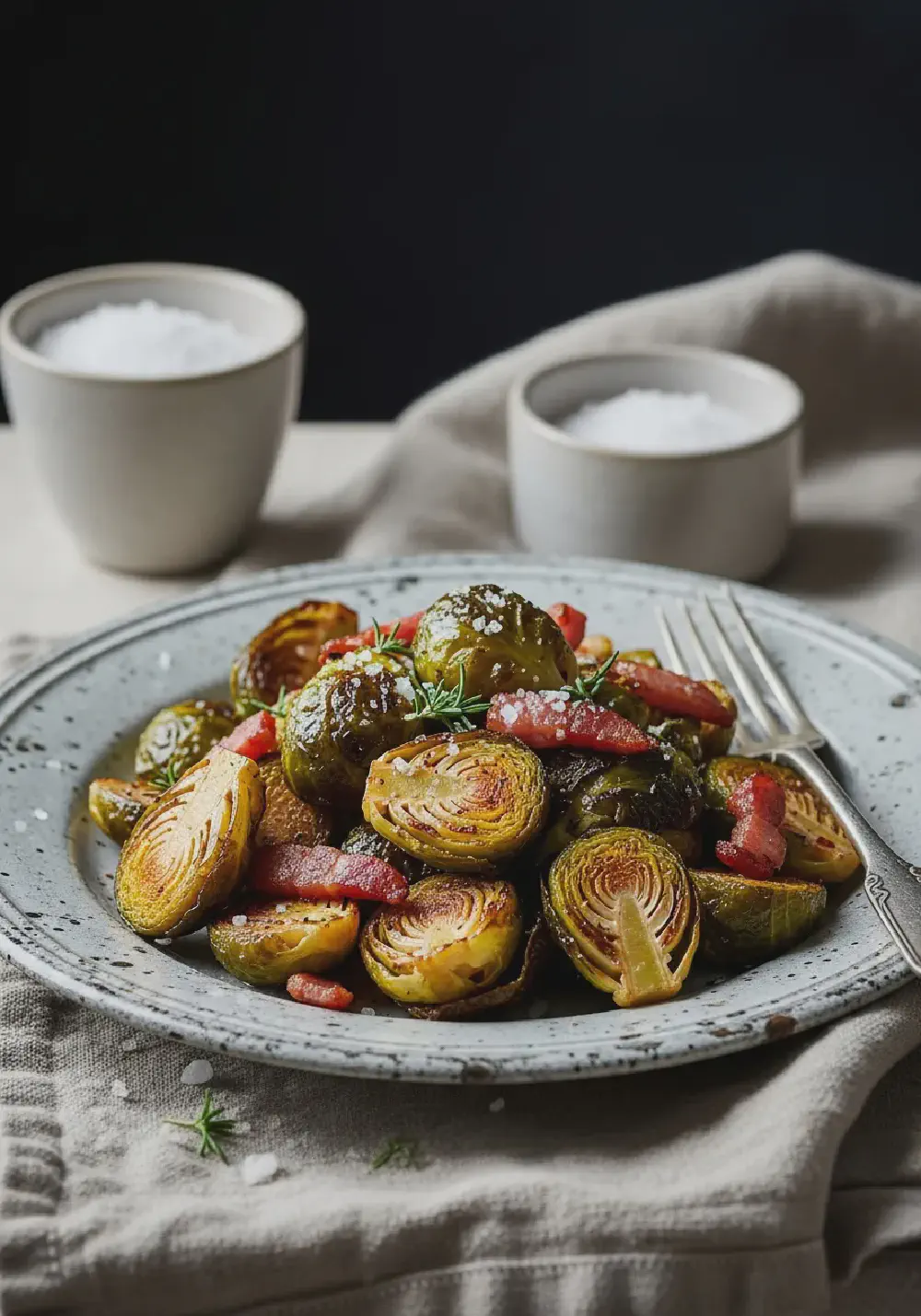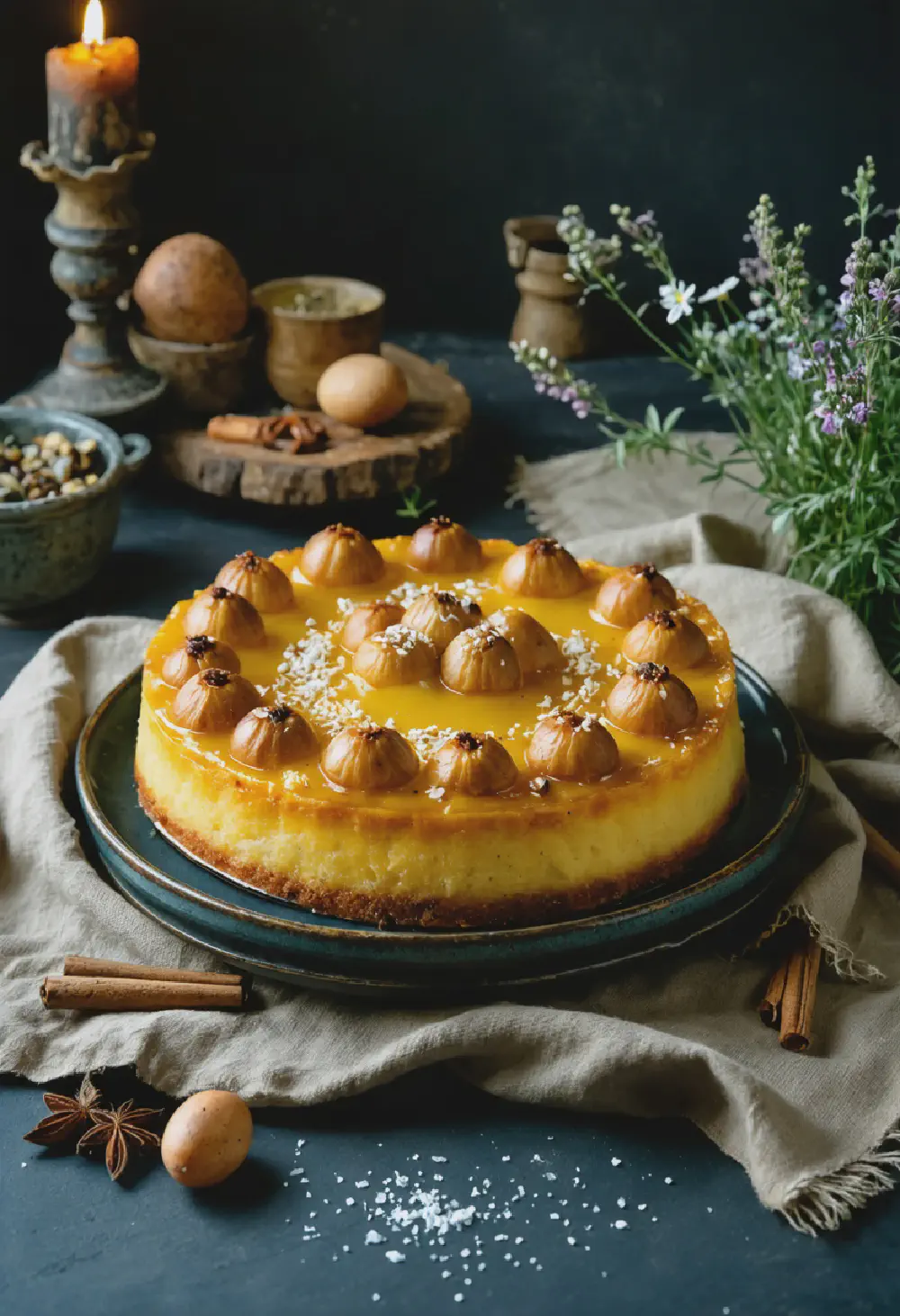Classic American Carrot Cake
30M
1H and 15M
- Makes 12
- 2 cups all-purpose flour
- 2 teaspoons baking powder
- 1 1/2 teaspoons baking soda
- 1 teaspoon ground cinnamon
- 1/2 teaspoon ground ginger
- 1/4 teaspoon ground nutmeg
- 1/2 teaspoon salt
- 1 1/2 cups granulated sugar
- 1 cup vegetable oil
- 3 large eggs
- 1 teaspoon vanilla extract
- 2 cups grated carrots
- 1/2 cup crushed pineapple, drained
- 1 cup chopped walnuts
- 1/2 cup raisins
- For the frosting:
- 8 ounces cream cheese, softened
- 1/2 cup unsalted butter, softened
- 4 cups powdered sugar
- 1 teaspoon vanilla extract
- Preheat your oven to 350°F (175°C). Grease and flour two 9-inch round cake pans.
- In a large bowl, sift together the flour, baking powder, baking soda, cinnamon, ginger, nutmeg, and salt.
- In another bowl, beat the sugar, oil, eggs, and vanilla extract until well combined.
- Gradually add the dry ingredients to the wet ingredients, mixing until just combined.
- Fold in the grated carrots, crushed pineapple, walnuts, and raisins.
- Divide the batter evenly between the prepared pans and smooth the tops.
- Bake for 40-45 minutes, or until a toothpick inserted into the center of the cakes comes out clean.
- Allow the cakes to cool in the pans for 10 minutes, then transfer to a wire rack to cool completely.
- For the frosting, beat the cream cheese and butter together until smooth. Gradually add the powdered sugar and vanilla extract, beating until creamy.
- Once the cakes are completely cool, spread a layer of frosting on top of one cake layer. Place the second layer on top and frost the top and sides of the entire cake.
- Slice and serve. Enjoy your classic American carrot cake!
Classic American Carrot Cake: A Sweet Slice of History
History
The Classic American Carrot Cake has a rich history that traces back to the early 20th century. Initially, carrot cake gained popularity during World War II when sugar was rationed, and resourceful bakers turned to carrots as a natural sweetener. The cake’s roots, however, can be traced back even further to medieval times in Europe, where carrots were used in puddings and cakes. Over the years, the recipe evolved and became a staple in American cuisine, celebrated for its moist texture and delightful flavor. The Classic American Carrot Cake is a testament to the ingenuity and adaptability of American bakers, who have perfected this dessert to become a beloved treat for any occasion.
Taste Profile
The Classic American Carrot Cake is renowned for its unique and delectable taste profile. The cake is moist and tender, thanks to the grated carrots that not only add sweetness but also contribute to the cake’s signature texture. The flavor is a harmonious blend of warm spices like cinnamon, nutmeg, and sometimes ginger, which complement the natural sweetness of the carrots. Often, the cake is enhanced with ingredients like crushed pineapple, coconut, and nuts, adding layers of flavor and a delightful crunch. The crowning glory of the Classic American Carrot Cake is its creamy cream cheese frosting, which provides a tangy contrast to the sweetness of the cake, making every bite a perfect balance of flavors.
Cultural Significance
In American cuisine, the Classic American Carrot Cake holds a special place as a symbol of comfort and celebration. It is a popular choice for birthdays, holidays, and other special occasions, often gracing the tables at family gatherings and festive events. The cake’s versatility and universal appeal make it a beloved dessert across the country, transcending regional differences. Its presence in American culture is further cemented by its frequent appearance in diners, bakeries, and home kitchens, where it is cherished for its nostalgic charm and delicious taste. The Classic American Carrot Cake embodies the spirit of American baking, where traditional recipes are cherished and shared, creating lasting memories and sweet moments.



















